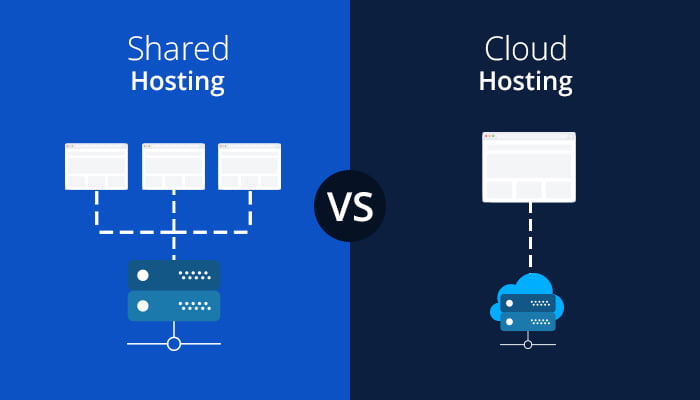When it comes to hosting your website, there are a number of different options to choose from. Three of the most popular options are shared hosting, cloud hosting, and VPS (Virtual Private Server). In this blog post, we’ll take a look at the key differences between these three options and help you determine which one is the best fit for your website.
Shared Hosting:
Shared hosting is the most basic and affordable type of hosting. With shared hosting, your website is hosted on a server with many other websites, and you all share the same resources such as CPU, RAM, and disk space. This makes shared hosting a great option for small and basic websites, as well as for those just starting out.
- Affordable and cost-effective
- Easy to use and set up
- Suitable for small and basic websites
- Good option for those just starting out
- Limited resources and performance
- Not suitable for high-traffic websites
- Limited customization options
- May have restrictions on what you can run on your website
Cloud Hosting:
Cloud hosting is a type of hosting that utilizes multiple servers in a network to host your website. With cloud hosting, your website is hosted on a virtualized environment that is dynamically scalable, meaning that you can easily scale your resources as your website grows. This makes cloud hosting a great option for websites with unpredictable traffic spikes.
- Dynamically scalable and easy to scale resources
- Great for websites with unpredictable traffic spikes
- High performance and reliable
- More secure than shared hosting
- More expensive than shared hosting
- Steeper learning curve than shared hosting
- Can be more complex to set up and manage
VPS:
VPS (Virtual Private Server) hosting is a type of hosting that provides you with a virtualized environment that is dedicated to your website. With VPS hosting, you have your own server resources and can customize your environment to meet the specific needs of your website. This makes VPS hosting a great option for websites that require more resources and customization than shared hosting can provide.
- Dedicated resources and more customization options
- Great for websites that require more resources and customization
- Higher performance than shared hosting
- More secure than shared hosting
- More expensive than shared hosting
- Steeper learning curve than shared hosting



